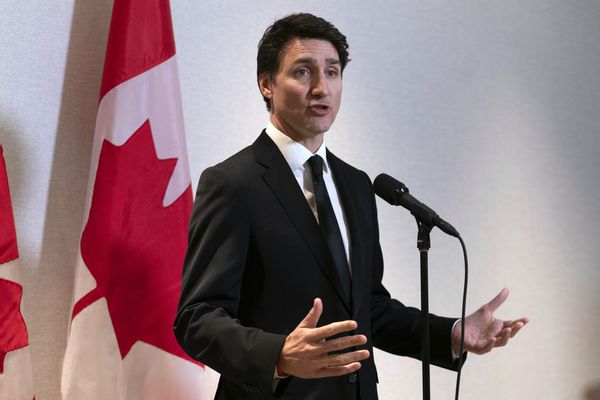People on eight DWP and HMRC benefits will face a huge cut in their income from April, as inflation races far beyond any rises given to state payouts.
Benefits will go up by 3.1 per cent but, by that point, inflation is forecast to hit 7 per cent, creating what is effectively a cut in income. Millions of people on means-tested benefits will see a £500 drop on average over a year, a foundation has warned.
The independent Joseph Rowntree Foundation says nine million families who receive benefits such as Universal Credit to top up their incomes will be hundreds a year worse off on average. It warns working couples on benefits who have kids will find themselves £720 out of pocket, single parents with kids will end up with £550 less and pensioner couples face an income drop of £540.
Also read: Two big number plate rule changes coming into effect next month
The foundation says failure to act would make the Government responsible for a second cut to benefits in less than six months, following the loss of the Universal Credit £20-a-week coronavirus top-up last October, Birmingham Live reports.
The foundation said: "For families on low incomes, a reduction in the value of benefit levels that are already inadequate could not come at a worse time. Already, too many families are going without the essentials. The price of food and other basic items is rising, and the energy price cap could push the average bill towards around £2,000 from April, leaving many families deeply concerned about how they will manage to stay afloat."
The JRT told BirminghamLive all means-tested benefits - where state payments are based on a person's income - will be affected, defining these as:
- Universal Credit
- Child Tax Credit (paid by HMRC)
- Housing Benefit
- Income Support
- income-based Jobseeker's Allowance (JSA)
- income-related Employment and Support Allowance (ESA)
- Working Tax Credit (paid by HMRC)
- Pension Credit - find out more about this 'gateway benefit' here
People on these means-tested benefits will see a £500 drop on average over a year, the foundation said. A working couple on benefits who have kids will experience a £720 cut in income (equivalent to £60 a month), a single person on benefits with kids will be worse off by £550, and pensioner couples will find themselves £540 out of pocket. For a single pensioner, the income drop is £390.
The JRT is calling on the Government to uprate benefits in line with the Bank of England’s February 2022 Monetary Policy Report forecast of 7 per cent inflation by April as an immediate first step to help keep up with the rising cost of living.
It said: "At the very least, uprating means-tested benefits by 7 per cent would stop this real-terms cut to benefits and protect families on the lowest incomes from the worst impacts of rising costs. But this must go hand in hand with investment in the overall adequacy of social security support, particularly for those who are not in work or are unable to work, whose support is at a 30-year real-term low."
The report continued: "The Government’s temporary support package in response to rising energy bills has been roundly criticised for failing to target sufficient levels of support to those most in need, and for its use of a loan scheme which risks delaying rather than alleviating the pressure on household budgets. Following the energy price cap rise, families on low incomes face an average energy bill increase of £566 a year, meaning they will spend on average 16 per cent of their incomes after housing costs on energy bills.
"The mitigations consisting of the council tax rebate and rebate loan then claw-back will cover only 60 per cent of the increase for the average low-income family, highlighting the risk of widespread hardship if further action is not taken.
"The planned real-terms cut follows a £1,000-a-year cut to the incomes of households on Universal Credit last October, in the face of widespread opposition including by many Conservative MPs. While working families saw some extra support through changes to the UC taper rate and work allowance, this did not fully mitigate the impact of the cut for all working families.
"Those out of work, including people who have lost their job, those seeking work and those who are unable to work due to sickness, disability or caring responsibilities, saw no mitigation and are £20 per week worse off following the cut."
A Government spokesperson said: “We know this has been a challenging time for many people, which is why we’re providing support worth around £12bn this financial year and next, to help households with the cost of living. This includes putting an average of £1,000 more per year into the pockets of working families via changes to Universal Credit and boosting the minimum wage by more than £1000 a year for full-time workers.
“We have also announced a further £9bn to protect against the impact of rising global energy prices and our £500 million household support fund is helping the most vulnerable with essential costs this winter."
Latest DWP benefits figures show 12.4 million people on State Pension and 5.8 million on Universal Credit. A further 2.8 million are on Housing Benefit, 1.8 million get ESA, 1.4 million claim Pension Credit and 217,000 receive Income Support.
Want our best stories with fewer ads and alerts when the biggest news stories drop? Download our app on iPhone or Android
READ MORE: DWP benefit claimants can get £15 fibre broadband from BT and Virgin - here's how
READ MORE: DWP state pension age 'to rise to 70' amid fears triple lock could go
READ MORE: DWP: How to appeal PIP decision if you didn't get it or the award isn't long enough







